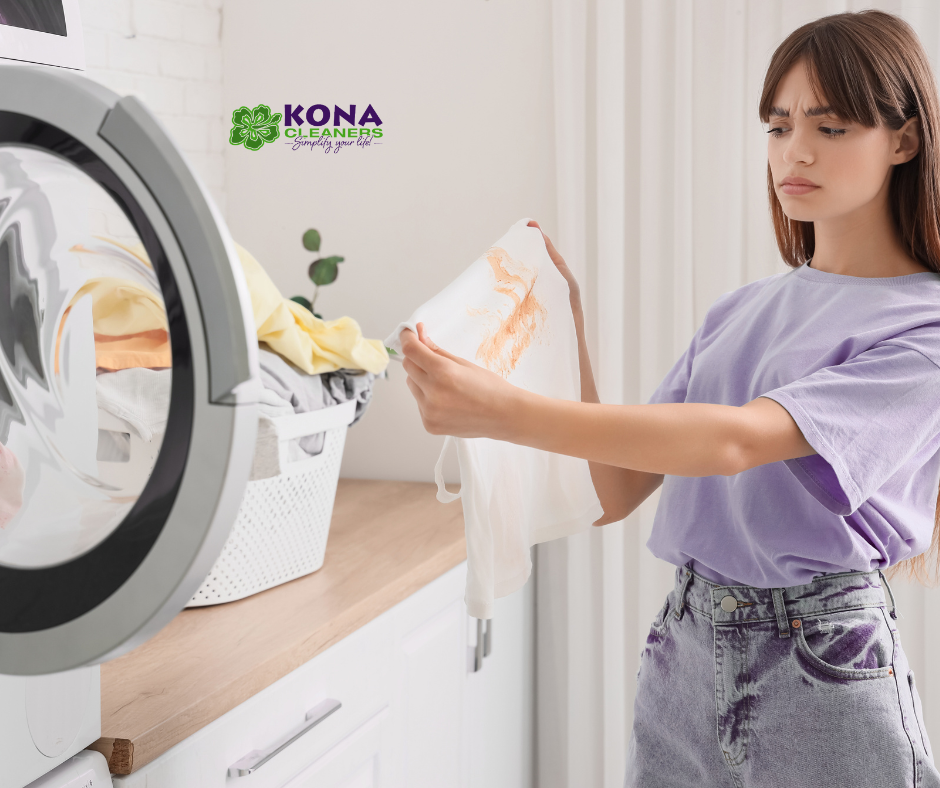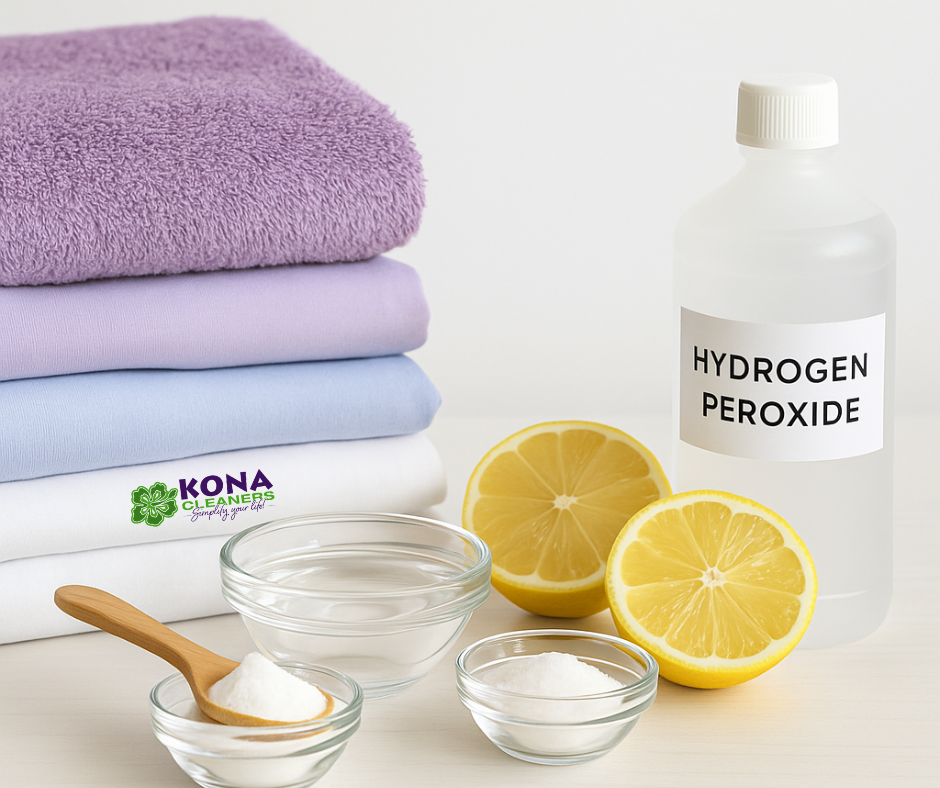When Laundry Hacks Hurt Your Clothes
The internet is full of “genius” laundry hacks that claim to make your clothes cleaner and your life easier. But here’s the thing: some of these so-called tricks are actually laundry hacks that hurt your clothes. Before you dump pantry ingredients into your washing machine or freeze your favorite jeans, it’s worth asking: Does this really work, or is it just a clever online claim?
At Kona Cleaners, we’ve seen every experiment under the sun. Some are harmless, some are hilarious, and some, well, end with clothes that look like science projects gone wrong. Let’s bust five popular laundry hacks that hurt your clothes (and your washer) and show you what to do instead.
1. The Baking Soda + Vinegar Combo
Myth: Mixing baking soda and vinegar creates a powerful, all-natural cleaner.
Truth: It seems like a smart combo, but these two cancel each other out. Baking soda is a base, and vinegar is an acid. When they meet, they neutralize one another and turn into mostly water and carbon dioxide. Sure, the fizz looks satisfying, but it doesn’t actually clean anything. In the end, your clothes get about as clean as if you’d washed them in plain water.
How to Use Them Correctly: To reap the benefits of each, timing is crucial. Add baking soda at the start of your wash to neutralize odors, then use vinegar during the rinse cycle (in the fabric softener compartment) to help remove detergent residue and gently soften cotton fabrics.
Kona Tip: Chemistry can be tricky, especially in your washing machine. Leave the experiments to us. Kona’s cleaning process keeps your clothes fresh, bright, and balanced—no fizz required.
2. Freezing Jeans to “Kill Germs”
Myth: Putting jeans in the freezer eliminates bacteria and odors without washing.
Truth: Unfortunately, your freezer isn’t a germ graveyard. It’s more like a nap zone. Cold temperatures can slow bacterial growth, but they don’t kill the odor-causing microbes clinging to your denim. Once your jeans thaw, the bacteria (and their smell) come right back.
Better Option: Wash jeans inside out on cold to protect their color and shape, and avoid overwashing them; washing every 4–6 wears is sufficient. For deep cleaning without damage, professional cleaning removes odor and buildup safely.
Kona Tip: Skip the freezer burn and trust Kona to keep your denim looking cool and clean.
3. More Detergent = Cleaner Clothes
Myth: The more soap you use, the cleaner your clothes will be.
Truth: It’s the opposite. Using too much detergent traps suds and dirt inside the fabric fibers, leaving your clothes stiff, dull, or even smelling bad. It also leaves residue that can irritate sensitive skin and clog your machine’s drainage system.
Better Option: Follow the measurement on your detergent’s cap or switch to pre-measured pods for consistency. And if you have a high-efficiency washer, remember—it needs less, not more.
Kona Tip: When you’re not sure how much detergent to use, our team knows precisely what your fabrics need. Less really is more when it comes to clean.
4. Vinegar as a Fabric Softener
Myth: Vinegar is a safe and eco-friendly alternative to traditional fabric softeners.
Truth: This one’s half-true. A small splash of vinegar in the rinse cycle can help dissolve residue on sturdy cottons and towels. However, using it too often, or on delicate fabrics like spandex, silk, or polyester, can cause fading, weaken the elastic, and reduce the lifespan of your clothes. The acidity may also wear down rubber seals inside your washer.
Better Option: Use vinegar sparingly (and never full-strength), or opt for fabric softeners specifically made for your type of fabric.
Kona Tip: Want that soft, freshly laundered feel without the risk? Kona’s gentle cleaning process keeps clothes plush, bright, and long-lasting—no pantry products necessary.
5. Skipping the Dry Cleaner for “Delicate” Items
Myth: The hand-wash or delicate cycle is just as good as dry cleaning.
Truth: Not even close. Fabrics such as silk, wool, velvet, and many synthetics require professional solvents, not water, to preserve their shape and texture. Washing them at home can cause color bleeding, shrinkage, or warping that can’t be reversed.
Better Option: If a tag says “Dry Clean Only,” trust that it means what it says. Those instructions exist to protect the structure, dye, and fibers of your clothing.
Kona Tip: At Kona Cleaners, we utilize advanced, eco-friendly cleaning methods that safely remove stains and odors, keeping your special garments runway-ready.
The Bottom Line: Trust Experts, Not Experiments
The next time a laundry hack pops up on your feed, remember that not every “miracle trick” is worth the risk. Between neutralized vinegar reactions, sleeping bacteria, and detergent overloads, your wardrobe deserves better.
At Kona Cleaners, we use proven techniques (not laundry hacks that hurt your clothes) to care for your wardrobe the right way. From jeans to gowns, we’ll keep your garments clean, soft, and looking their best (no baking soda volcanoes required). Visit one of our convenient locations in Orange County and the Inland Empire or schedule a pickup.



